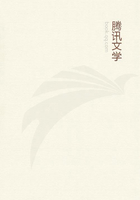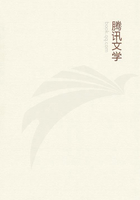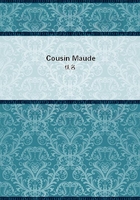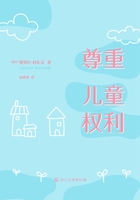THERE is in Russia an emeritus Professor Nikolay Stepanovitch, a chevalier and privy councillor; he has so many Russian and foreign decorations that when he has occasion to put them on the students nickname him "The Ikonstand." His acquaintances are of the most aristocratic; for the last twenty-five or thirty years, at any rate, there has not been one single distinguished man of learning in Russia with whom he has not been intimately acquainted. There is no one for him to make friends with nowadays; but if we turn to the past, the long list of his famous friends winds up with such names as Pirogov, Kavelin, and the poet Nekrasov, all of whom bestowed upon him a warm and sincere affection. He is a member of all the Russian and of three foreign universities. And so on, and so on. All that and a great deal more that might be said makes up what is called my "name."
That is my name as known to the public. In Russia it is known to every educated man, and abroad it is mentioned in the lecture-room with the addition "honoured and distinguished." It is one of those fortunate names to abuse which or to take which in vain, in public or in print, is considered a sign of bad taste. And that is as it should be. You see, my name is closely associated with the conception of a highly distinguished man of great gifts and unquestionable usefulness. I have the industry and power of endurance of a camel, and that is important, and I have talent, which is even more important. Moreover, while I am on this subject, I am a well-educated, modest, and honest fellow.
I have never poked my nose into literature or politics; I have never sought popularity in polemics with the ignorant; I have never made speeches either at public dinners or at the funerals of my friends. . . . In fact, there is no slur on my learned name, and there is no complaint one can make against it. It is fortunate.
The bearer of that name, that is I, see myself as a man of sixty-two, with a bald head, with false teeth, and with an incurable tic douloureux. I am myself as dingy and unsightly as my name is brilliant and splendid. My head and my hands tremble with weakness; my neck, as Turgenev says of one of his heroines, is like the handle of a double bass; my chest is hollow; my shoulders narrow; when I talk or lecture, my mouth turns down at one corner; when I smile, my whole face is covered with aged-looking, deathly wrinkles. There is nothing impressive about my pitiful figure; only, perhaps, when I have an attack of tic douloureux my face wears a peculiar expression, the sight of which must have roused in every one the grim and impressive thought, "Evidently that man will soon die."
I still, as in the past, lecture fairly well; I can still, as in the past, hold the attention of my listeners for a couple of hours. My fervour, the literary skill of my exposition, and my humour, almost efface the defects of my voice, though it is harsh, dry, and monotonous as a praying beggar's. I write poorly.
That bit of my brain which presides over the faculty of authorship refuses to work. My memory has grown weak; there is a lack of sequence in my ideas, and when I put them on paper it always seems to me that I have lost the instinct for their organic connection; my construction is monotonous; my language is poor and timid. Often I write what I do not mean; I have forgotten the beginning when I am writing the end. Often I forget ordinary words, and I always have to waste a great deal of energy in avoiding superfluous phrases and unnecessary parentheses in my letters, both unmistakable proofs of a decline in mental activity. And it is noteworthy that the simpler the letter the more painful the effort to write it. At a scientific article I feel far more intelligent and at ease than at a letter of congratulation or a minute of proceedings. Another point: I find it easier to write German or English than to write Russian.
As regards my present manner of life, I must give a foremost place to the insomnia from which I have suffered of late. If I were asked what constituted the chief and fundamental feature of my existence now, I should answer, Insomnia. As in the past, from habit I undress and go to bed exactly at midnight. I fall asleep quickly, but before two o'clock I wake up and feel as though I had not slept at all. Sometimes I get out of bed and light a lamp. For an hour or two I walk up and down the room looking at the familiar photographs and pictures. When I am weary of walking about, I sit down to my table. I sit motionless, thinking of nothing, conscious of no inclination; if a book is lying before me, I mechanically move it closer and read it without any interest -- in that way not long ago I mechanically read through in one night a whole novel, with the strange title "The Song the Lark was Singing"; or to occupy my attention I force myself to count to a thousand; or I imagine the face of one of my colleagues and begin trying to remember in what year and under what circumstances he entered the service. I like listening to sounds. Two rooms away from me my daughter Liza says something rapidly in her sleep, or my wife crosses the drawing-room with a candle and invariably drops the matchbox; or a warped cupboard creaks; or the burner of the lamp suddenly begins to hum -- and all these sounds, for some reason, excite me.
To lie awake at night means to be at every moment conscious of being abnormal, and so I look forward with impatience to the morning and the day when I have a right to be awake. Many wearisome hours pass before the cock crows in the yard. He is my first bringer of good tidings. As soon as he crows I know that within an hour the porter will wake up below, and, coughing angrily, will go upstairs to fetch something. And then a pale light will begin gradually glimmering at the windows, voices will sound in the street. . . .

